The three-spined stickleback (Gasterosteus aculeatus) is one of the species native to Europe that everyone should know and every aquarist should have kept at least once. Entire books could be written about this incredibly adaptable fish – and many have been.
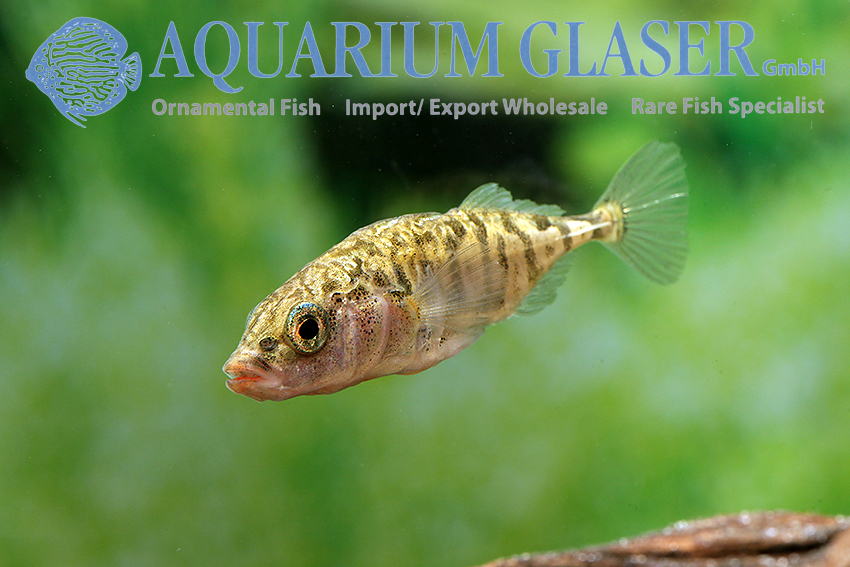
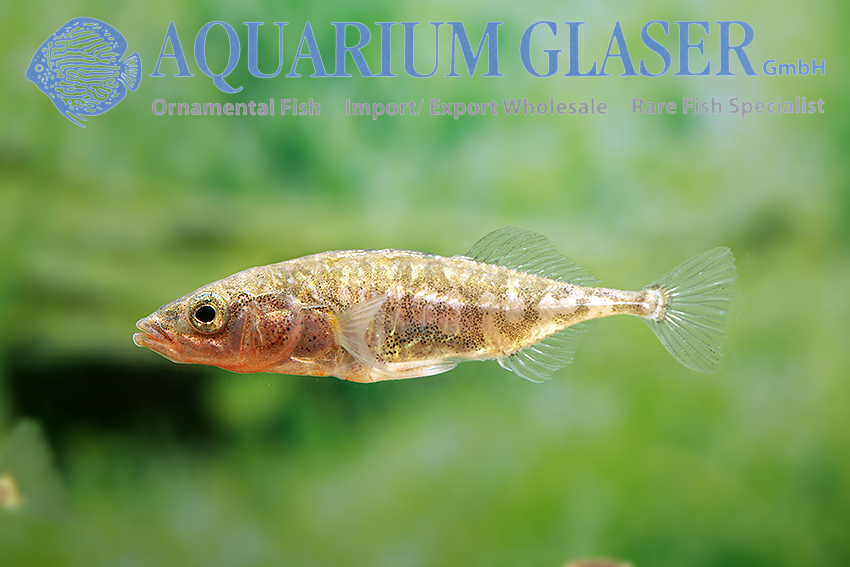
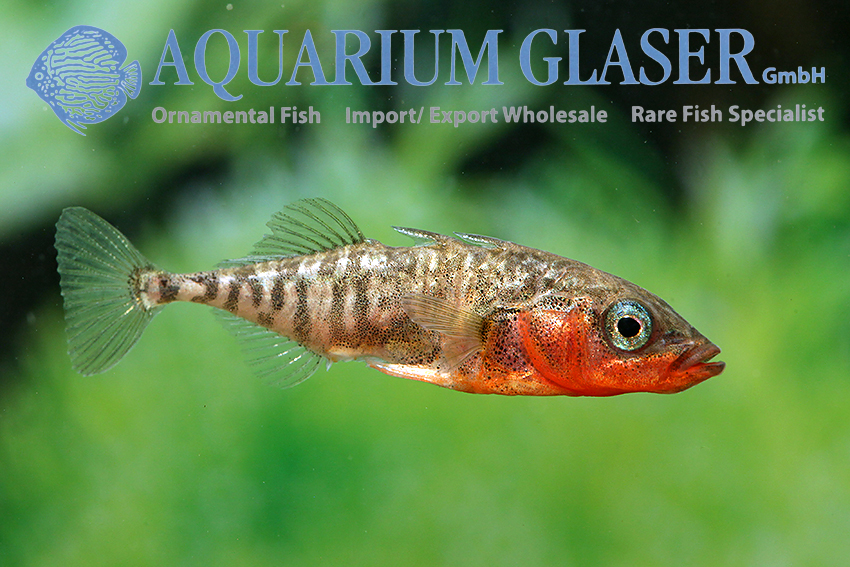
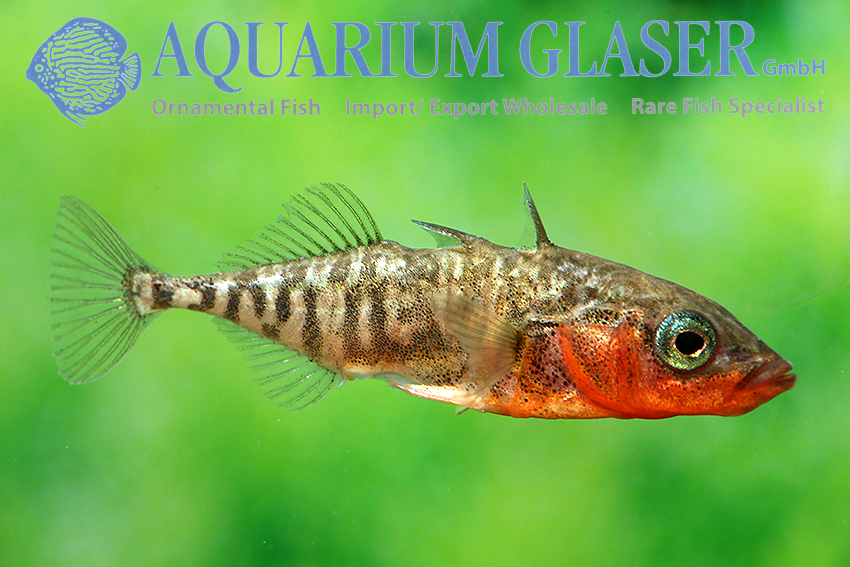
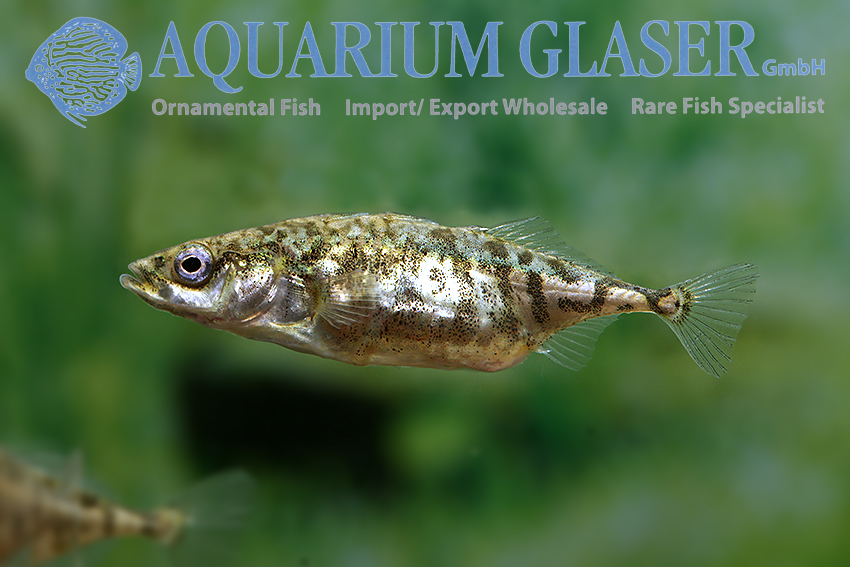
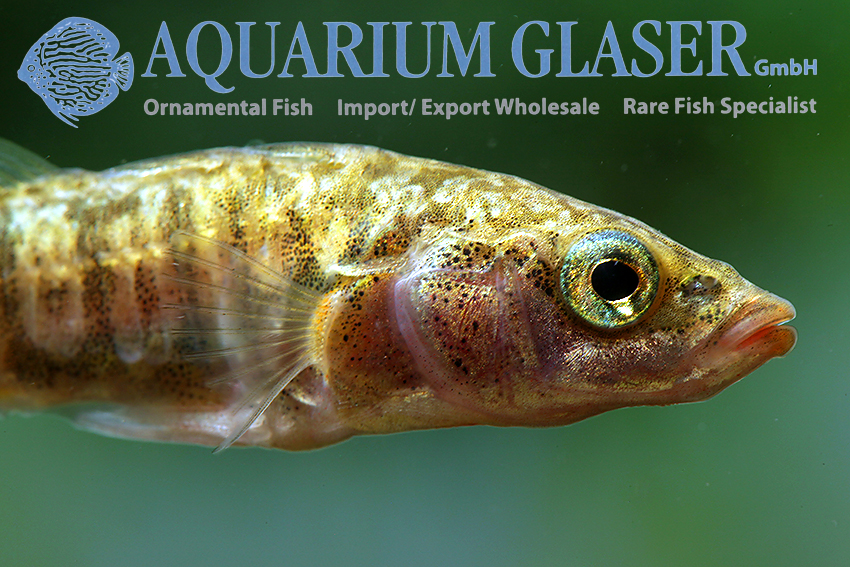
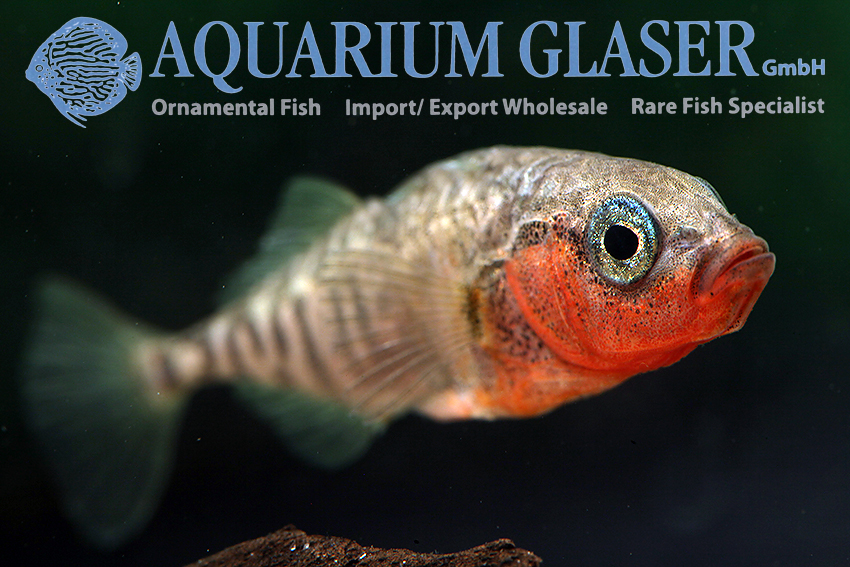
Nevertheless, it is still poorly understood from a purely scientific point of view. The freshwater form – as we offer it from domestic pond breeding for the trade – is seen by some authors as a separate species, which would be called Gasterosteus gymnurus. However, the majority of scientists do not follow this view and see G. gymnurus as a synonym of G. aculeatus.
Because so much has already been written about sticklebacks, we will only give the aquaristically relevant key data here: Water temperature 10-25°C (completely hardy in the open); water values basically unimportant, but medium values are most favorable; structurally rich and well-planted aquarium, preferably with sandy bottom; outside the breeding season schooling fish; males during brood care with deep red throat and extremely territorial, then if possible keep only one male and several females per aquarium. The male builds a nest of plant material at the bottom of the aquarium in which it spawns with several females; the eggs and young are guarded by the male until they are free swimming. Dry food is usually disdained, but frozen food is readily accepted.
Our animals are kept outdoors; they can be placed directly in garden ponds. If you plan to keep them indoors, you should allow 2-3 days to acclimatize the fish to the higher temperatures as slowly as possible.
Please remember that fish from the trade should never be released. This also applies to native species in particular, as they can inadvertently introduce many diseases into a wild population, leading to mass mortality among the original native wild animals!
For our customers: The animals have code 884004 on our stock list. Please note that we only supply the wholesale trade.
Text & photos: Frank Schäfer




